June 2018 national eResearch newsletter
Welcome to the June AeRO eResearch Newsletter
Message from AeRO CEO
What a Busy Month!
C3DIS has concluded but the work is just beginning as it spawned many new projects and collaborations.
It was fantastic to see 350 delegates from over 60 organisations and thanks to CSIRO, Defence Science & Technology, Geoscience Australia, and Bureau of Meteorology for their support.
You can see highlights at http://aero.edu.au/c3dis/ and find slides at http://www.c3dis.com/program (more will follow).
However there is no time to rest, with eResearch Australasia fast approaching. Luckily, the deadline on the call for participation was extended to 22nd June https://conference.eresearch.edu.au/
Sam Moskwa, AeRO CEO.
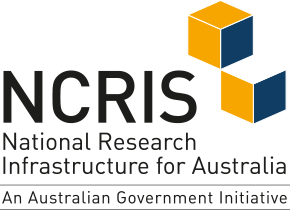 |
New Funding and Leadership for NRDC
ANDS, Nectar and RDS as representatives of the NRDC have secured a $72m cash injection for the procurement of research infrastructure over the next 5 years. The funds, provided by the Australian government through the National Collaborative Research Infrastructure Strategy (NCRIS) program, will ensure researchers have the cutting-edge equipment, services and infrastructure to keep Australia on the forefront of research globally. To lead the future directions of the NRDC, Richard Northam has been appointed Interim Executive Director. Richard has been recruited for the purpose of establishing the NRDC framework, and transitioning the projects into a single governing entity by July 2019. Full articles: https://www.ands-nectar-rds.org.au/news. |
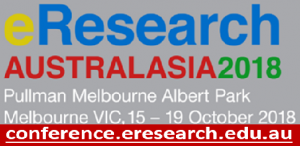 |
eResearch Australasia Conference Participation Deadline Extended to 22 June
Be part of Australasia’s most popular eResearch conference (Melbourne, 15 to 19 October)! Due to a high number of requests, the submission deadline for the submissions for the following have been extended to Friday 22 June 2018:
Posters and Solutions Showcases remain open till 24 August. Don’t miss out on your chance to contribute! There will be no further extensions! More information at https://conference.eresearch.edu.au/abstract-submission/. |
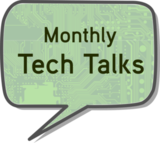 |
Monthly Tech Talk in July – DEVLs #2 – 6 July
The next monthly Tech Talk (virtually and at locations around Australia) will be held at 15:00-16:00 AEST on Friday, 6-July-18. The topic will be: Developing Australia’s Data Enhanced Virtual Laboratories (DEVLs) #2. Eight DEVLs have been invited to introduce their software platforms that support Virtual Labs over two TechTalk events. The second event is at 15:00-16:00 AEST on Friday, 6-July-18. Slides and videos from the previous event (#1, held on 1 June) will be available at the Meetup soon. More information and how to enrol can be seen at https://www.meetup.com/monthlytechtalk/ |
 |
EMBL-ABR Webinar covers Bioconda and the Conda Package Manager on 12 July
Bioconda is the most popular and widely used bioinformatics channel for Conda (the package, dependency and environment management tool for any language – Python, R, Ruby, Lua, Scala, Java, JavaScript, C/ C++, FORTRAN). By adding a tool to the Bioconda ecosystem, it becomes widely available as an installable tool package for various operating systems and hardware that is stored in a fully-supported, global repository of bioinformatics tools. Bioconda basics will be covered, and how Australian researchers can use it to streamline bioinformatics tool wrapping for use on various systems. Presenter: Thom Cuddihy, QFAB. |
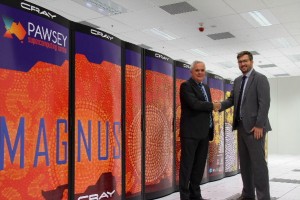 |
Pawsey Supercomputing Centre Appoints new Director
Mr John Langoulant, AO, Pawsey Chair, announced the appointment of WA based Mr Mark Stickells to the post, effective 16 July 2018. He noted that “Mark’s experience with government, industry, research and technology will bring synergy to Pawsey, and will help him to lead this Centre into a new era.” Mark is an advocate of science and innovation and has extensive experience in the resources sector. He has played a major role in developing networks across Australia and overseas, to create opportunities for collaboration and partnership that benefit researchers, industry and ultimately the Nation. Full story https://www.pawsey.org.au/2018/05/pawsey-announces-the-appointment-of-a-new-director/. |
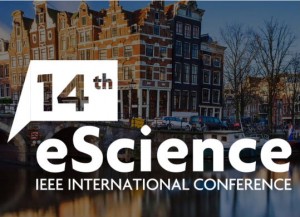 |
Invitation to IEEE eScience 2018 Conference
IEEE eScience 2018 aims to advance scientific and scholarly research via digital technologies – from humanities to physical sciences, to be held in Amsterdam, Netherlands from 29 October to 1 November 2018. The goal of this conference is cross-fertilization across academic disciplines, to fully exploiting the use of digital technologies and explore open science opportunities. The program features workshops and tutorials, plenary keynote talks, and special sessions on:
For more information, visit http://www.eScience2018.com. |
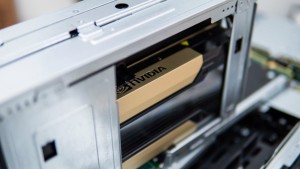 |
Pawsey Wants Early Adopters for Cloud Service
A year after launching Nimbus, the Pawsey Supercomputing Centre is excited to announce the service’s expansion with Graphics Processing Unit (GPU) nodes. The expansion includes 6 nodes each containing 2 x NVIDIA Tesla V100 16GB GPUs. These are built to accelerate Artificial Intelligence, HPC and graphics. This NVIDIA Volta architecture offers the performance of up to 100 CPUs in a single GPU. With the GPUs currently being installed, Pawsey is calling for Early Adopters – researchers who can provide user time on the system to aid in validating and optimising the service prior to full production use. See more at https://www.pawsey.org.au/2018/05/calling-early-adopters-for-a-powerful-new-cloud-service/. |
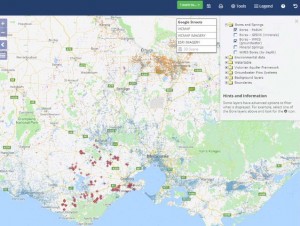 |
Visualising Victoria’s Groundwater Relaunch
Visualising Victoria’s Groundwater (VVG) is an interoperable spatial information portal that federates groundwater data from disparate sources, providing easy, public access to all of Victoria’s groundwater bore data. First launched in 2012, the portal has recently been updated and modernised. Principal research fellow Associate Professor Peter Dahlhaus and the team at the Centre for eResearch and Digital Innovation at Federation University Australia, have worked extensively on developing and expanding the portal’s usability and functionality. Significant upgrades now include an online library of resources, enhancements to the spatial map interface, and a data download catalogue. |
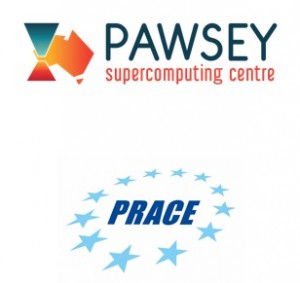 |
Pawsey Joins Forces with PRACE to Promote the Use of Supercomputing
The Pawsey Supercomputing Centre and the Partnership for Advanced Computing in Europe (PRACE), have signed a Memorandum of Understanding (MOU) to promote the use of supercomputers to the progress of scientific and technological outcomes, and to stimulate the industry sector both in Australia and Europe. PRACE and Pawsey share the complexity and international nature of the science areas that each organisation supports, the need to provide services to researchers who are spread across different time zones and the requirement of on-demand access to compute power for a scientific instrument. Read more here: https://www.pawsey.org.au/2018/06/pawsey-joins-forces-with-prace-to-promote-the-use-of-supercomputing/. |
 |
NCI Key to Fundamental Molecular Discovery
One of NCI’s expert staff has helped to make a significant new discovery about the way molecules can take shape. The method through which molecules arrange their atoms and change shape promises to enable amazing new chemistry in the future, including for microelectronics, drug design and new materials. Making this discovery required the research team to perform state-of-the-art quantum mechanical modelling of spectroscopic properties on NCI’s Raijin supercomputer. Read more: http://nci.org.au/research/fundamental-molecular-discovery/. |
 |
World-Leading Ocean Simulations
Researchers from the new ARC Centre of Excellence in Climate Extremes are leveraging NCI’s huge supercomputing power to perform world-leading ocean simulations. They are using more than 500 computer-processing cores in parallel over thousands of hours to investigate fine-scale turbulence and convection in the Southern Ocean. Read more: http://nci.org.au/research/world-leading-ocean-simulations/. |
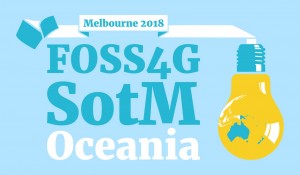 |
FOSS4G SotM Oceania 2018 Conference Announcement
The joint Free Open Source Software for Geospatial (FOSS4G) and State of the Map (SotM) Oceania Conference will be held in Melbourne 20 to 23 November 2018. The Open Source Geospatial (OSGeo) and OpenStreetMap communities of Australia, New Zealand, and Oceania are gathering for the first time in nine years for four days to explore open source geospatial technology and data. Call for papers and workshops: 18 June 2018 Sign up for announcements: https://tinyurl.com/foss4g-oceania Get active on social media now:
|
 |
AARNet Showcases CloudStor at European Networking Conference
AARNet has presented CloudStor (based on ownCloud’s open filesharing system) at the recent annual European Networking Conference in Trondheim, Norway. The solution allows researchers to collect their data at a central repository and to organize and aggregate these data intelligently, making it easier for researchers to collaborate, in an era when cross-border and barrier-free access to all data is becoming increasingly important. “The way we used to think of storage services as passive pool of data is outdated. The magic is when you are the datahub of ongoing research projects,” emphasised AARNet’s Guido Aben. |
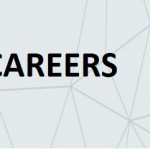 |
AeRO Jobs Board
Don’t forget that AeRO is helping spread the word on the latest eResearch job opportunities. We post jobs immediately to https://twitter.com/AeRO_eResearch and also update on our website at http://aero.edu.au/eresearch-careers/. This is a free service for the eResearch community – to advertise a position, simply email loretta@aero.edu.au. Current vacancies include a Research Data Manager, a Medical Research Data Scientist, a Digital Humanities Professor, a Cybersecurity Program Director, Cloud Computing and HPC experts, a Scientific Software Developer, Web or Full Stack Software Developers, Research-focused Business Analysts and Project Managers, an ORCiD Membership Specialist, and a Head of Research Computing. |
Contributions
This newsletter is based on contributions provided by members of the eResearch community, and draws on news articles and newsletters published across the sector. The Newsletter is published around the 16th of each month.
Please send any contributions (max. 100 words, plus a link and image) or pointers to any other relevant articles or newsletters to editor@aero.edu.au
Archives of these Newsletters are held at http://aero.edu.au/newsletters/.
Click HERE to add yourself to the eResearch Mailing List.
Thanks,
—AeRO Newsletter Editor

